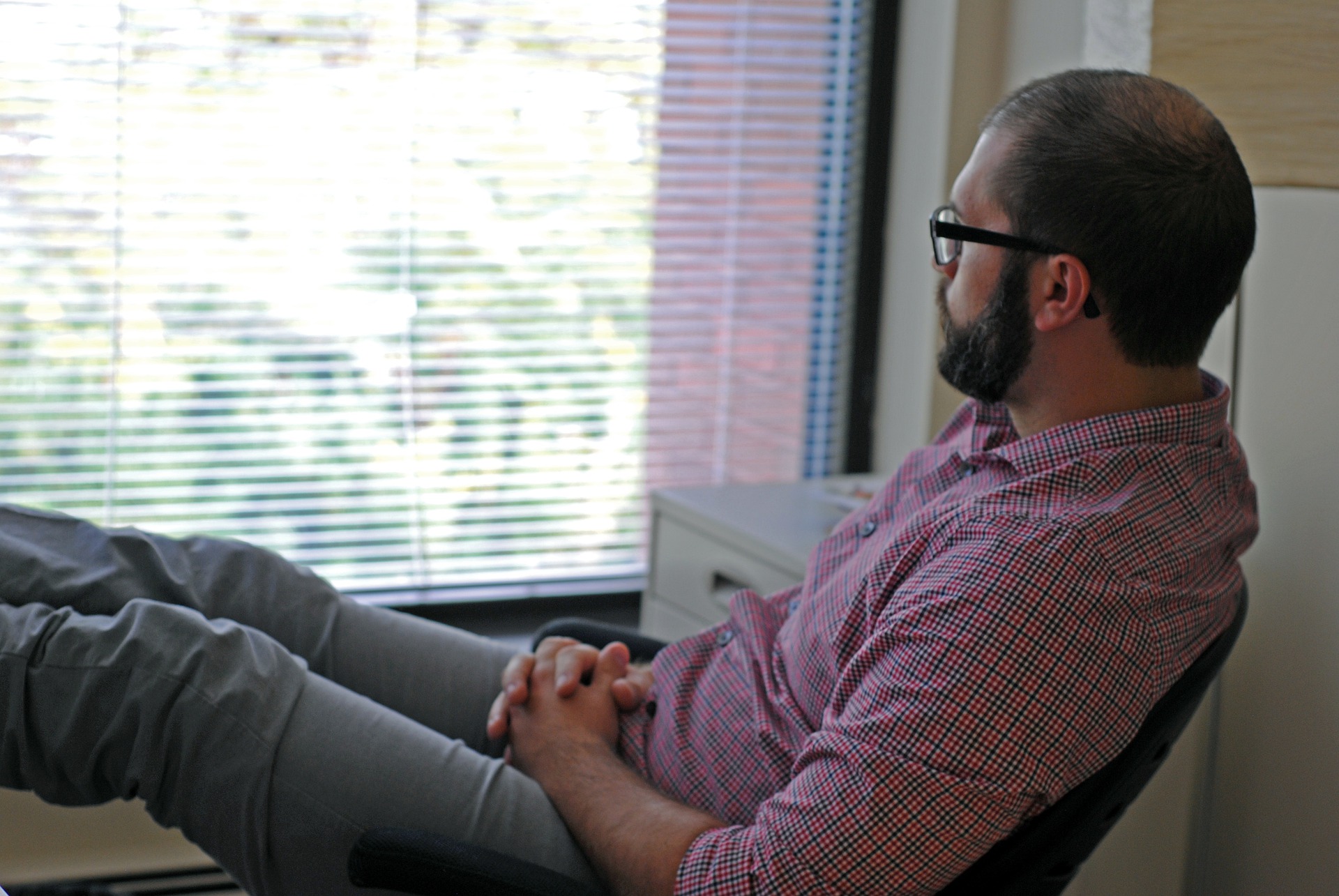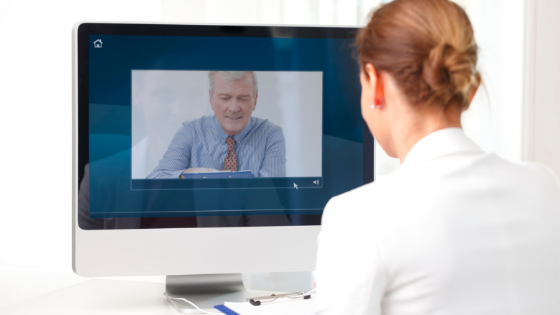Hey Christian, so you want to read your Bible, you know it’s an important spiritual discipline. You’re striving to have this in your life on a regular basis, and then bam, OCD gets in the way. Let’s talk about it. Insert the jingle here. Happy to announce to you all that carriebock.com is live. We will make sure you have that link in the show notes.
I always like to tell people verbally, it’s Bach, like the chicken sound, not like the composer. Anyway, this website project has been massive and ongoing to combine my counseling practice website and podcast website together. What’s really cool is if you go down to podcast breakdown, it’s a page. You can actually search all of our episodes, so if there are specific topics you were looking for like prayer or ERP or ICBT, you can search for those specific episodes, which is really cool.
We’re also working on fixing our categories so that hopefully on the side of the page you’ll just be able that everything will be categorized the way we want to. If you want to hear about personal testimonies from other Christians, you can click on those. Those tend to be early. Popular episodes, and we are certainly looking for new guests.
So if you want to tell your story or know someone else who wants to tell. Their OCD story. We’d love to talk with you about being on the podcast. You do not have to be a big celebrity. Not a requirement at all. Just an openness and a willingness to talk about what God has done in your life. Today we’re talking about reading your Bible.
So we had a previous episode on Bible study from Should to Want. That was episode 78. If you want to go back and Check that one out where I interviewed Keith Farrin. It was a really good conversation. But I want to talk with you more specifically today about, let’s say that you are struggling with your Bible reading because OCD keeps getting in the way.
Usually what I see in my practice is that this goes one of two ways for Christians. Either they are obsessively reading the Bible, Like, I need to be reading the Bible hours at a time. I need to be studying or poring over and understanding what does this one word mean. And even with all of that study, there’s still this level of anxiety that somehow it’s just not enough.
I’m not doing as much scripture reading as I feel like I should or as I feel like God wants me to in order to please Him. I like to say with OCD that we have doers and avoiders. So this would be the doer category. I’ve got to do, do, do, perform, perform, perform, then perhaps God will be pleased with me. Or at least I’m going to do everything that I can in order to not have this anxious feeling.
And then we have the avoiders. Who say, okay, if I don’t go do the hard thing, then I’m not going to feel the anxiety, and so therefore I’ll just be over here, not doing that thing. Yeah, I know I’m supposed to read my Bible, I want to read my Bible, but every time I sit down to read my Bible, I get super triggered, I have a lot of anxiety, scrupulosity obsessions come in.
What if God doesn’t love me? What if God isn’t real? What if I don’t have enough faith? All the what ifs that OCD likes to throw at you. What if I commit the unpardonable sin? What if I didn’t really read that correctly and now I need to go back and re read it so that I make sure I fully understand it?
As you can tell, this can go a lot of different directions. Ultimately, it’s frustrating, right, because the very thing that you desire to do and you want to engage with, you can’t find a way to engage with it in a healthy way. This can happen with other areas of your life as well, like eating or cleaning or, or practicing caution.
None of these things in themselves are bad, but then when it comes to OCD, Things get taken to an extreme and go off the rails. So let’s talk more specifically. What do you do if you’re that person who approaches a Bible study and it just feels like it’s never enough. You feel like you need to be spending more time.
You need to be understanding more. You need to be diving deeper. You don’t feel like God is pleased with you because you’re not reading all the time. To kick OCD in the pants, you’re really going to need to limit yourself, and that may be hard to hear, but if you are reading compulsively, then you are feeding that OCD cycle of, I’m hearing this obsession and then compulsively responding to it with massive amounts of activity.
So it’s going to feel uncomfortable, but you’re going to actually have to dial back your Bible reading and limit yourself to a certain amount of time or a certain amount of chapters, something of that nature, so that you don’t get caught up in doing this spiritual practice compulsively. I wouldn’t say don’t go to an extreme and not do it at all, although I think some people might encourage that for a time period.
I wouldn’t necessarily encourage that because you want to be able to practice your spiritual disciplines in a healthy way, in a way that is typical of other practicing Christians. I would also encourage you to examine the story behind this compulsive Bible reading, because there’s a story there, right, that you’re telling yourself that a lot of times is rooted in performance based theology.
That’s what I’m going to call it, for lack of a better way to call it. It’s not rooted in grace. It’s not rooted in Christ’s work on the cross. It’s rooted in What I’m doing to maintain my relationship with God, and unfortunately, you think it’s more spiritual because you think you’re focusing on God more, but really you’re focusing more on you.
And your own activity. And I know that that’s super hard probably to hear because that’s not where you want to be. And that’s not what you want to be focused on or your heart. But if it’s all about what I’m doing to maintain my relationship with God and not resting and being and trusting and abiding in who God is, then I’ve got things backwards.
Speaking from a place of personal experience of living with performance based theology in my earlier walk with Christ, I did not have obsessions or OCD about it, but I definitely felt like, oh yeah, Jesus saved me, I’m saved by grace, but now that I’m a Christian, it’s my job to jump in here and do all the things that I’m, quote, supposed to do that are the good.
moral right things and spiritual disciplines, whether I feel it or not. And there was so much weight and so much burden. And I never understood that scripture where Jesus said, my yoke is easy and my burden is light. I was like, I feel so heavy all the time. Like there’s a list of rules. And there’s a checklist, and there’s all these things that I have to do, and I’ve got to get it together, and if I mess up, it’s like, I’m done.
Like, it’s all over, and I’m a horrible person, and I’m worthless. That is not how we are to be living as Christians. Our actions are to be an overflow of the Holy Spirit’s work in our life. Here’s what I have come to learn through study of the Bible and walking with God. Is that if I could not save myself, I certainly cannot sanctify myself, meaning I cannot make myself more like Christ on my own.
Let’s look at Philippians 2, 12 and 13. Paul is saying, Work out your own salvation with fear and trembling, for it is God who is working in you, both to will and to work according to His good purpose. We have the responsibility to show up and engage with God, but God is doing the work within us. So awesome.
So awesome. We can’t idly sit by and say, Okay, just, like, fill me up with the Holy Spirit. We do have to engage in that process. But if I’m trying to make everything happen, that’s only going to lead to more frustration. So, More disappointment in myself, more feelings of not good enough and worthless. It’s a never ending cycle.
I would love nothing more than to help you get off that hamster wheel. Send me a message through karybach. com and would love to talk with you about what opportunities we have to help you get there. Let’s talk for a moment if you are in the avoidance category. Maybe you would say, I haven’t read my Bible in days, not because I don’t want to, but because OCD really runs rampant and throws a bunch of obsessions on me when I try to engage in scripture reading.
I would really encourage you to re engage in small ways that are going to feel safe for your brain and body. Once you do that, you take the small steps, and you can certainly always add to them a bigger step, right? Sometimes people will say, okay, I am avoiding certain passages that then grows and maybe leads to more and more avoidance.
So you want to find ways to like dip your toe in the water, maybe even just meditating on one or two scriptures where you really feel like the Lord wants you to focus in on. It could be a topic for example, like peace or God being our father. It could be that you meditate on specific verses about God’s love for you.
If that’s something that you’re having trouble connecting with emotionally, maybe you’re struggling with uncertainty and need to meditate on specific scriptures. involving faith or trust. One thing I do know is that God is so gracious and he will meet you where you are at. Be honest with him about what you are thinking and feeling.
Then we have to ask ourselves too if God doesn’t feel safe to sit with in terms of reading, his love letter to you. Where did that come from? Did that come from a church hurt experience? What’s the story? What’s the deeper story behind that? Did that come from a harsh parent and now you’ve projected that onto God?
What’s the story that you’re telling yourself about God? And what’s the story that you’re telling yourself about you in terms of your position into who you are in Christ? So whether you’re doing too much and you’re overdoing your Bible reading or whether you’re avoiding, what I’m learning so much with scrupulosity is you have to be willing to look at your theology.
What are your actual thoughts about God? And then where did those things come from? Are they rooted in foundations of scripture and healthy spiritual practice, or are they coming from a place of woundedness, hurt, or intense fear? You can get caught in a thought loop and thinking the same thing over and over and over.
Or you can take a step back and re evaluate and re examine. One of the things I love about doing ICBT with Christians is that we can look at the reasons for the obsessional doubt. Like, there’s a reason that you are stuck on this particular OCD theme. There’s a reason that you’ve come to the conclusions that you’ve come to.
And sometimes once your eyes are open to that, even though it’s a early stage in the treatment process of building awareness, sometimes people are like, Oh, that’s an OCD reasoning structure. This is OCD getting in the way versus before maybe they just thought, Well, I’m anxious about this situation. It’s like, No, I actually have a doubt that I’m believing and holding on to, and it’s a lie that OCD has told me.
I want you to know that if you are struggling with scrupulosity, that there is hope. Healing is possible, and I’m thankful for each one of you who are tuning in to listen to this. I hope it helps you engage with your Bible reading in a healthier way this week.







